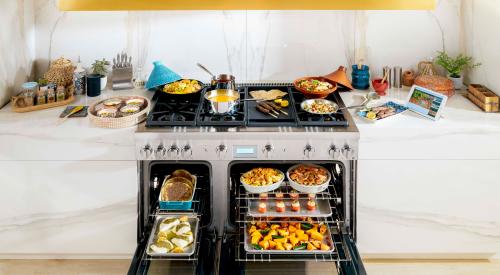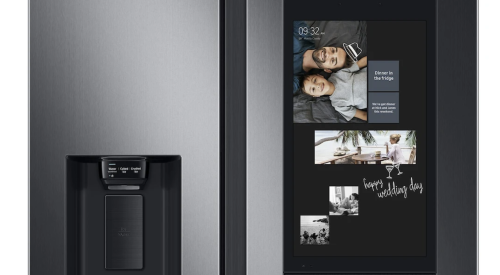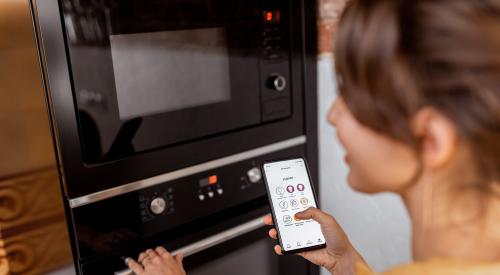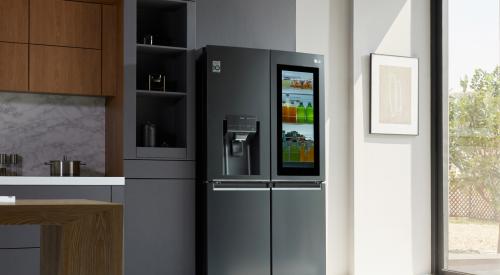CEDIA’s Giles Sutton (interim co-CEO) and Ian Bryant (senior director of strategic partnerships), along with BSH’s Sheldon Lam (digital partnerships manager) and the publication CE Pro recently undertook a survey to find out how many technology integrators were specifying smart appliances in the kitchen.
The quick answer: Not many, but there’s a lot of room (and enthusiasm) for growth.
Of all those who responded, 38% said that they hadn’t done a single project that included smart appliances in the past year. A mere 3% said they’d included some kind of device in this category in every job they undertook.
Those numbers belie the potential here—as these kinds of devices, from microwaves to laundry centers, come to include more connectivity and machine-learning features, adoption is likely to rise.
Consider:
- 44% of the respondents see themselves specifying smart appliances at some point in the future,
- 59% of integrators already feel comfortable talking to clients about the value of smart appliances, and,
- 80% of integrators want to learn more about the potential for smart appliances.
Outreach from the big manufacturers could help here: around 20% of those polled had any contact with appliance manufacturers on these devices, even though integrators see themselves as becoming the primary specifier of smart appliances (followed only by the interior designer on a project).
Hindrances to broader adoption include concerns about profit margins, access to marketing materials that support the products, and the interoperability of different brands (i.e., “Will fridge X and microwave Y work and play well with control system Z?”). That last point about smart home tech was top of mind among the integrators surveyed.
Most popular smart appliances
The types of appliances likely to be specified are pretty intuitive: Refrigerators were the most common answer, which makes sense given the features available here—built-in tablets, temperature controls, and the potential for the “live-look-in” when the end-user’s at the store and wondering if they’re out of almond milk.
Laundry centers, with their evolving abilities to do a load of wash that practically does everything but fold the clothes, are a close second. As far as brand awareness, the top dogs were Samsung, Bosch, LG, and Sub-Zero/Wolf, in that order.














